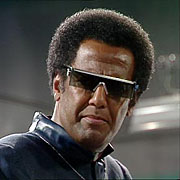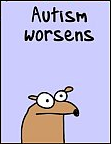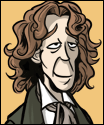|
Random Stranger posted:I listened to the stories where Hex dies and comes back as bad Hex a while ago and I didn't really care enough to run down how it turns out. Hex was a pretty good companion but I feel like his character arc was done by that point and this change up was not doing anything for me. That arc is loving atrocious. It's only four stories long, with three writers, but it can't maintain continuity from story to story -- even between the two stories written by the same writer. OldMemes posted:On a related note, Veklin is the most underrated Time Lord. But isn't Veklin, you know, a fascist? Edit; just going off recent discussion, not specifically aimed at you friendo, buuuut... BF are in kind of a weird position -- on the one hand, they want to do stories that decry fascism, eugenics, etc. and there's a recent story that handles this material with the subtlety of an elephant gun, letting the viewer know exactly what they should think about these kinds of people and their arguments. But at the same time they've created two (three tbh) separate ranges where near all, if not all, of the regulars are either fascists or actively employed in their support. Adele Anderson's recurring timelord, Tamasan, has a whole speech where she goes on about how much she hates the Thals (he war allies) and thinks the entire species is uppity for wanting to be served meals on the same spaceship as her people, and she's meant to be, I dunno, morally grey or whatever. Klein, at the very least, is expressly an antagonist in her stories, and the five stories that make up her initial arc are expressly, textually, about fascism -- both as a general purpose ideology and as a discussion of Nazism and its continued effects down the years. Tamasan, Veklin, Ollistra, Rasmus, and pretty much every original timelord figure from this Time War period are all dyed in the wool fash -- which is what you'd expect, sure, except that these stories don't seem to make much of an effort to address these ideas head on. (I'm pretty sure not a single story even uses the word fascism.) Seeing the Time Lords positioned as antiheroes or whatever -- an entire supporting cast of antiheroes whose central flaw is that they like slavery, vivisection, totalitarism and crushing the lesser races -- is something I find more morally dubious than an arc about why there's no point in tolerating Nazis, particularly since their villainy is often expressed through this amorphous idea of "war" being "bad", rather than an inevitable end point stemming from their internal ideology.
|
|
|
|

|
| # ? Jun 6, 2024 10:38 |
|
Open Source Idiom posted:Klein, at the very least, is expressly an antagonist in her stories, and the five stories that make up her initial arc are expressly, textually, about fascism -- both as a general purpose ideology and as a discussion of Nazism and its continued effects down the years. As far as I can remember I've only listened to the War Doctor stories in the stuff BF has done regarding the Time War, so the only name I really recognize or that stands out for me there is Ollistra. She was pretty much written as the antagonist supporting role to the War Doctor, who constantly decried her actions even as he beat himself up for the part he was playing in the whole mess. I can't speak to the others, but 7 barely does any of that with Klein, at least in the stories I've heard so far. He'll tell her that fascism/the Nazis were wrong, but then she'll be make reference at points to truly horrible ideas and the Doctor's reaction is usually just a tut-tut or a wry,"Oh really?" and she's far too monstrous not to be getting constantly called out on how horrible she is. Great that he wants to show her more things and expand her understanding of other people/places, but the soft touch he gives for somebody who can only bring herself to say that Mengele was "misguided" in his "enthusiasm" is just a bridge too far for me.
|
|
|
|
I remember listening to the Klein trilogy in 2011-12 or whatever and enjoying them a lot at the time. Tracey Childs is always excellent, and the hook of having the Doctor travel with a companion who is so diametrically opposed to him in how she conceives of the world and morality is, at least conceptually, really interesting. But thinking back, it is mostly treated as an intellectual excercise. That's not to say the audios are so tone-deaf as to treat Klein and the Doctor as morally equivalent in any way - she is as convinced of her worldview as the Doctor is of his, and she is given a background that goes some way of explaining why she's the way she is, but I don't think we're ever supposed to consider her perspective justifiable. Still, their conflict (at least in the first two parts) remains mostly on the level of snappy tÍte-ŗ-tÍte, where it's easy to forget that one of the ideologies under consideration ends with people dead and in work camps, and the other, you know, doesn't. Spoilers for The Architects of History (not much you wouldn't know from having heard UNIT: Dominion, but still): I don't remember all the details but I don't think the Doctor's attempts to redeem her amount to much, at least when it comes to her original incarnation. She is unquestionably a villain throughout the final part. She is only "redeemed" by having the entirety of her personal history changed, so that she grows up in a completely different environment and ends up essentially a totally different person. It's a bit of a cheat, really, and I don't know if it says anything about deradicalisation or whatever that would be applicable to the real world. You could also view that in parallel with Klein's own actions in Architects - the only way she is able to make Space Nazism work in any sustained fashion is by constantly cheating and rewriting history, and the only way the Doctor is eventually able to de-Nazify her is by rewriting history so that she was never a Nazi in the first place. Again, I found this really cool ten years ago, but thinking about it now it's just a bit frustrating. The audios seem to admit that Klein can't just simply be taught the error of her ways because what makes someone a fascist is more complicated than that, which I take to ultimately mean that attempting to civilly debate actual Nazis (with the expectation of having them change the entirety of their worldview at the drop of a hat) is a fool's errand, as evidenced by the Doctor's catastrophic failure in trying just that. At the same time, the trilogy does end with the Nazi villain no longer a fascist and integrated into society, which leads me to expect that it has something to say about what can be done instead. And I don't know what that something is if all the unbreakable rules of space and time had to be broken multiple times for that to happen. The Klein trilogy sets up the question of how we should engage with and overcome fascist ideology in our midst, and in the end, its answer is "have a time machine". That's maybe fine when you're playing with hypotheticals in the realm of SF, but in 2022 when these are actual questions we have to ask ourselves in the real world, that's less than nothing.
|
|
|
|
https://averylychee.neocities.org/doctor-who/audio-guide/ Hey has anyone used this particular Big Finish audio guide before? Through skimming it I think I broadly agree with what the author considers 'essential' and 'stand-alone/skippable'. I think I listened to about 200 of the audios years ago but I don't think I'd like just starting where I left off since I don't really remember a lot and I'd like to revisit some of the more plot-critical stuff. I've got a lot to go through, admittedly, but this seems like a good guide so I can skip the ones I need to. (Needless to say I was skipping Minuet in Hell anyway).
|
|
|
|
Jerusalem posted:As far as I can remember I've only listened to the War Doctor stories in the stuff BF has done regarding the Time War, so the only name I really recognize or that stands out for me there is Ollistra. She was pretty much written as the antagonist supporting role to the War Doctor, who constantly decried her actions even as he beat himself up for the part he was playing in the whole mess. I can't speak to the others, but 7 barely does any of that with Klein, at least in the stories I've heard so far. He'll tell her that fascism/the Nazis were wrong, but then she'll be make reference at points to truly horrible ideas and the Doctor's reaction is usually just a tut-tut or a wry,"Oh really?" and she's far too monstrous not to be getting constantly called out on how horrible she is. Great that he wants to show her more things and expand her understanding of other people/places, but the soft touch he gives for somebody who can only bring herself to say that Mengele was "misguided" in his "enthusiasm" is just a bridge too far for me. I've a very strong memory of Briggs talking about how he sees Ollistra as the War Doctor's "companion" -- and though I'm guessing you've not heard it yet, the character just spent a couple of stories threatening to send Leela off for human experimentation. The War Doctor might soap box about these things sometimes, but ultimately he still does what Ollistra, Rassilon, et. al. want. He could leave, he could stage a coup, he could even try the softly softly approach that McCoy favoured, but instead he keeps going on missions for them, building them death machines, etc. and then feeling bad when it turns out that his bosses are lying psychopaths who love murdering other races. Again, like, I get where you're coming from with Klein, but she was introduced with the clear understanding that she would be a villain, and then reintroduced for a three release story arc where it was again understood that she'd be defeated at the end of those stories (and then she was brought back several times because money). The second arc, the one you're almost done with now, is expressly about how attempting to tolerate people like her is dangerous. And, again, I get that the arc is uncomfortable and maybe you don't think it has much pedagogical value, but I think it's clearly attempting to say something interesting. On the other hand, I get the sense that the War Council characters are meant to be more ambiguous figures, but ultimately I think could be a problem with clarity of the overall narrative (I've discussed my reasons in this post and above). If Veklin is the kind of character someone can think is secretly awesome or whatever, rather than too fascist to be worth admiring, then in this case I'm tempted to put the blame on the story rather than the listener. Forktoss posted:I remember listening to the Klein trilogy in 2011-12 or whatever and enjoying them a lot at the time. Tracey Childs is always excellent, and the hook of having the Doctor travel with a companion who is so diametrically opposed to him in how she conceives of the world and morality is, at least conceptually, really interesting. But thinking back, it is mostly treated as an intellectual excercise. That's not to say the audios are so tone-deaf as to treat Klein and the Doctor as morally equivalent in any way - she is as convinced of her worldview as the Doctor is of his, and she is given a background that goes some way of explaining why she's the way she is, but I don't think we're ever supposed to consider her perspective justifiable. Still, their conflict (at least in the first two parts) remains mostly on the level of snappy tÍte-ŗ-tÍte, where it's easy to forget that one of the ideologies under consideration ends with people dead and in work camps, and the other, you know, doesn't. Yeah, these are roughly my feelings as well -- barring the wonky bit of history where Klein talks about how civilised the British colonisation of Africa was. Comparatively better, probably, but man. I think the arc is also trying to make a point that Klein's utopia is ultimately a self-defeating state, and given enough rope she'd inevitably end up defeating herself. Hence the (main) Doctor's surprisingly passive actions throughout all three stories. I don't agree with this, partly because it's not really true of these stories, or a remotely useful strategy in the real world. But I suspect it could account for some of the frustrations Jerusalem is feeling, I dunno. Crapilicious posted:https://averylychee.neocities.org/doctor-who/audio-guide/ It listed The Genocide Machine as "essential" because it gets a single line name checked in uhhh I think it's Time Of The Daleks, and not because it introduces a heavily recurring character who turned up in about twenty different releases, so I don't think it's particularly useful, sorry.  Meanwhile, both Minuet In Hell and Nekromanetia are actually plot essential in their own way, featuring the departure of recurring characters, but they're not listed as such on the site. Aaaaand it's out of date too -- for instance, Sword of Orion is an arc story now. As is Doctor Who (and the Pirates) and The Dark Flame, and -- Edit: Just now reread your original post and that's not exactly what you're asking. But IMO I'd just listen to what you want to; after the first two hundo stories or so (loving hell) mostly everything is very obviously connected, particularly if you listen linearly. Also that guide gets harder to follow the longer it goes, and seems to give up around 2008, so I unno Open Source Idiom fucked around with this message at 12:26 on Aug 29, 2022 |
|
|
|
The Doctor's attitude with regards Klien is his normal code of morals and expectations being clouded by guilt. His and Ace's negligence brought her timeline into being, and Schmidt seduced and manipulated her as a disposable resource to clean up his own mess before he annihilated her entire reality. I think the trilogy is far more interested in McCoy's performance than in actually interrogating the Nazis. Unfortunately, "not interrogating the nazis" hasn't aged as well as BF would probably like, and McCoy is not the strongest Doctor in BF's stable from a performance standpoint, so the whole trilogy kind of hangs on the one episode of Klien's Story
|
|
|
|
Jerusalem posted:[*] No Seriously, gently caress Nazis. Mentioned in A Thousand Tiny Wings, but the climate has changed so much since this story came out (2010) that it feels near impossible for me to give the benefit of the doubt to the story/character arc that Big Finish are trying to tell. I listened to The Fearmonger the other day and it has the same problem that a story about fascism written in a time when they're easily dismissed jokes becomes a bit unpleasant in the face of actual fascism on the march. At least The Fearmonger is about fascism being exploitative and lovely, it's just got the problem that the message is "polite nudging is the correct answer to fascism; you can oppose it, but don't oppose it too hard" which a lot of material from the 90's and 2000's had. Open Source Idiom posted:Klein, at the very least, is expressly an antagonist in her stories, and the five stories that make up her initial arc are expressly, textually, about fascism -- both as a general purpose ideology and as a discussion of Nazism and its continued effects down the years. Yeah, Klein's the villain and she keeps digger her hole deeper until her timeline gets wiped and they keep the actress around playing an alternate version who is not a Nazi.
|
|
|
|
Ollistra is ruthless, but not outright evil - she rejects the Doom Coalition's plan for universal genocide, but sees the ends as justifying the means. She does help the War Doctor protect innocent planets, even if she'd rather be focusing on the bigger picture. She's an interesting character. John Hurt and Jacqueline Pearce played off each other so well. The War Doctor is increasingly disgusted by this 'win at all costs' mentality. With Klein, it's strange that the Time Lords don't intervene until she's tied her own timeline in knots. The Doctor's relationship with her is complex - he feels guilty for creating her, and wants to - somewhat naively for this incarnation - show her that there are better ways than fascism. But Klein is too far gone to feel guilt or remorse. She can't be saved, only cut out of reality to save it from her. Survival of the Fittest is the Doctor showing her that there are different, better ways of living, and how wonderfully diverse and wide the universe is. And she rejects it. When she gets remade into the main universe not-a-Nazi version, she's horrified to hear about her counterpart, and it drives her to do better. Apparently Klein was originally going to be revealed to be the head of The Forge, fun fact. It's a rare thing to have a companion who has such a different mortality to the Doctor. Turlough has shades of grey, and C'rizz is fairly villainous, sure, but Klein being outright evil is a very different dynamic, and she suffers the consequences for it.
|
|
|
|
OldMemes posted:Ollistra is ruthless, but not outright evil - she rejects the Doom Coalition's plan for universal genocide, but sees the ends as justifying the means. She does help the War Doctor protect innocent planets, even if she'd rather be focusing on the bigger picture. She's an interesting character. John Hurt and Jacqueline Pearce played off each other so well. The War Doctor is increasingly disgusted by this 'win at all costs' mentality. Ollistra is a great character because she's what the Time Lords should be: imperious, arrogant, ruthless and petty like a bureaucrat loving everything over for the sake of a slightly better office. She'd a lord of time and she will lord it over everyone. And while she has to consistently lose since she's inevitably the antagonist in any story she appears in, she's not always presented as a total gently caress up (though there are way too many stories of her going "This thing that isn't really that different from what you'd find in most Doctor Who stories is the superweapon that will single handedly win the war as long as we don't lose control of it! Whoops, lost control of it!"). And Pearce's performance is consistently great even in weaker stories. She's one of the better things that Big Finish has added to Doctor Who.
|
|
|
|
OldMemes posted:Ollistra is ruthless, but not outright evil - she rejects the Doom Coalition's plan for universal genocide, but sees the ends as justifying the means. She does help the War Doctor protect innocent planets, even if she'd rather be focusing on the bigger picture. She's an interesting character. John Hurt and Jacqueline Pearce played off each other so well. The War Doctor is increasingly disgusted by this 'win at all costs' mentality. I suspect the most recent War Council set is shading my opinion of the character considerably, but no, the character is very definitely evil now.
|
|
|
|
Actively avoiding the Architects of History spoilers for now as I plan to listen to it in the next day or two, but even with the animosity between the Doctor and Klein in UNIT: Dominion I have a hard time seeing how we go from the end of Survival of the Fittest to that in only one story!
|
|
|
|
Random Stranger posted:I listened to The Fearmonger the other day and it has the same problem that a story about fascism written in a time when they're easily dismissed jokes becomes a bit unpleasant in the face of actual fascism on the march. At least The Fearmonger is about fascism being exploitative and lovely, it's just got the problem that the message is "polite nudging is the correct answer to fascism; you can oppose it, but don't oppose it too hard" which a lot of material from the 90's and 2000's had. Jubilee has some interesting things to say on this subject.
|
|
|
|
CobiWann posted:
Jerusalem posted:It's not a bad story, it's just not well executed. It's worth a listen if only to marvel at how far they've come since they started, and it's always neat to hear more of Davison, Baker and McCoy. If I'd been aware of Big Finish back during the wilderness years I can't even begin to imagine how I'd have reacted to discovering there was NEW Doctor Who featuring the original actors, and it's wonderful to be in a position now where it's just one of many hundreds of new stories whether on audio or back on television where it belongs. Crap Re-Listening: Monthly Adventures #001, The Sirens of Time I remember back when I was a noob in this thread all those years ago, being introduced into the full pantheon of secrets and mysteries that is Doctor Who canon by the learned masters CobiWann and Jerusalem through their reviews of Big Finish audios. Up until I happened to read this thread I had no idea the audios existed, and so was keen to start listening. The Sirens of Time, since I always listen to things chronologically, was the first one I listened to. And it baffled me completely. I was initially hooked by the idea that the three different Doctors were on their own adventures before getting mixed in to something together, but the whole concept and the villain.. just fell flat. Why were these people suddenly more powerful than the Time Lords, who while being bureaucratic and megalomaniacal generally are not this stupid? Temperon? Sirens of Time? It was all a bit slipshod. Just purely based on my impression of that, I should have dropped the audios altogether and not listened to another minute of them, no matter what the Grand Grognards of Goon Who said. But I didn't. Why? Five words. Sylvester McCoy and Colin Baker. Having watched Old Who as a kid partially in reruns and largely more familiar with New Who as a fully functioning adult, I didn't really have much an impression of Six and Seven. But these audios really did show why they had a following to this day. They acted their hearts out in the middle of this baffling script and I wanted to hear more of it. Peter Davison wasn't bad, but he was just kind of *there*. As others say, he does get better but it took him a lot longer to find his groove than the other two. So I relistened to it, and I was somehow able to follow the plot more. I'd forgotten the fine detail and even the reveal of the villains, but maybe I was paying more attention this time around. To be fair, my first listen occurred in buses, taxis and on walks to work in Jiangsu Province, China about eight years ago so perhaps I was a bit distracted. But it was still all over the place, and I know how much better they can do, and did do. So I'll give them half a point as interest. Original Crap Score: 2/5 Re-Listened Crap Score: 2.5/5 Next up, the return of Vislor Turlough and Cricket Man in: Monthly Adventures #002, Phantasmagoria.
|
|
|
|
Crapilicious posted:They acted their hearts out in the middle of this baffling script and I wanted to hear more of it. The true power of the Doctor('s actors)  Wonderful chap.... all of them.
|
|
|
|
https://twitter.com/AnthonyHopkins/status/1563930879780585473?s=20&t=ydM_ZHkKGNxxS_4OFlebug re: The Sirens of Time For me, one of the funniest stories to come out about the making of this is during the initial pitch meeting with potential BF writers, Jason Haigh-Ellery and Gary Russell said Nick Briggs would write the first story (the aforementioned Sirens), due to the schedule they were on an his experience in writing/directing audio. Well, Paul Cornell was there, and was dick to Briggs afterwards because he felt that it should've been one of the Virgin New Adventures writers, and not Briggs, because he hadn't "earned it". And when Cornell finally did deliver a script, it was "The Shadow of the Scourge", one of the worst BF stories. Davros1 fucked around with this message at 10:02 on Aug 31, 2022 |
|
|
|
Briggs can write a story but so many of his doctor who ones are extremely hit or miss, paired with the fact he doesn't take criticism well at all I tend to largely avoid them.
|
|
|
|
Confusedslight posted:Briggs can write a story but so many of his doctor who ones are extremely hit or miss, paired with the fact he doesn't take criticism well at all I tend to largely avoid them. Any more information on this? Did he blow up on Twitter about something?
|
|
|
|
Confusedslight posted:Briggs can write a story Let's not say things we can't take back
|
|
|
|
I can't track them down at the moment but theres been multiple times over the years of him giving middling reviews a sort of a telling off and it's just left a bad taste in my mouth. If someone else can co operate this that would be much appreciated. Don't get me wrong there is stuff he does that I quite like! Dalek empire comes to mind.
|
|
|
|
 Short Synopsis: Space Sharks vs. Moon Nazis. Long Synopsis: In 2044, a burgeoning Nazi Empire continues to grow thanks to the constant temporal interference of Elizabeth Klein. The Doctor is held prisoner on the moon, seemingly unconcerned by his torture. When The Selachians, shark-like alien monsters, attack the moon without warning in spite of Klein's advanced knowledge of the future, she discovers that she's now powerless to escape and her only hope is the Doctor, who she suspects of orchestrating everything. What's Good:
What's Not:
Final Thoughts: The Architects of History can't stand alone, and it doesn't. It's the culmination of a trilogy, and I didn't find it a satisfying one. The Nazi bullshit didn't leave me cold, it left me pissed off and frustrated, and none of the redeeming features of this story or the trilogy in general could overwhelm that. Even outside of the trilogy, introducing a brand new companion who never was, who never interacts with the Doctor (which is actually effectively done) and then is gone makes this not exactly a great story to recommend to anybody without at least 3 other stories to listen to first to make sense of it all. The Space Sharks are the writer's own pet creation from some books he wrote, and while they nicely fit his original idea - he wanted aliens that might have appeared in enthusiastic but low-budgeted episodes from the 2nd Doctor's run - as Nazi parallels/a legitimate threat they fall flat. The Daleks are name-dropped in this story and the previous, and the notion that Klein's piddly little human empire defeated the Daleks but can't deal with some bipedal sharks in water-suits is ridiculous. What a missed opportunity for Klein to encounter the horror of purestrain fascism via the Daleks and realize just how horrifying the perfect realization of her dream would look like as seen through them. They at least try to close up every apparent loophole with at least a line or a reference, though sometimes you have to fill in the blanks yourself: I guess Klein's fate means the Doctor's destroyed TARDIS is restored and he ends up back there with full memory of everything that happened? They kind of gloss over the fact he destroys his own TARDIS without the slightest reaction. Tracey Childs puts in a good performance, McCoy is at his best when he's toying with his captors and making them belatedly realize just how little power/control they had over him etc but... well, no, it's not a good story. I might have felt differently in 2010, but I suspect while I wouldn't have reacted as strongly to A Thousand Tiny Wings and Survival of the Fittest, I still wouldn't have enjoyed THIS story regardless. As the capstone to a trilogy, it's unsatisfying, and I'm relieved to have it behind me now. Jerusalem fucked around with this message at 14:04 on Aug 31, 2022 |
|
|
|
Crapilicious posted:Any more information on this? Did he blow up on Twitter about something? I only remember the one incident -- and tbh I suspect there's actually only been the one-- where he, and two other BF writers publicly criticised a reviewer on the Facebook page for leaving a review that was, famously put, "a bit mean". And then he went on his podcast after and kept digging his grave over it all. Said review gave the story 7/10.
|
|
|
|
Davros1 posted:re: The Sirens of Time Oh great, The Shadow of the Scourge is the next story on my list.  McCoy's stories have been a bit down my priority list for Big Finish and I grabbed the Hex stuff first. So it's only in the past few months that I filled in the early McCoy stories that weren't considered top tier and now I'm working my way through those. And Sirens of Time is a stinker. It's not "God, why the gently caress did they think it was okay to release this?!" awful, but I listened to again a few months ago and could tell you nothing about the story without a reminder. Confusedslight posted:Briggs can write a story but so many of his doctor who ones are extremely hit or miss, paired with the fact he doesn't take criticism well at all I tend to largely avoid them. If I see Briggs wrote the story or has multiple stories in a box set, I go, "Let's see what else they have." Random Stranger fucked around with this message at 14:15 on Aug 31, 2022 |
|
|
|
Yeah, The Architects of History doesn't quite show the horrors of an intergalactic Nazi regime, having them being a more generic evil empire, but its an effective story. The Doctor can't fix Klein, he has to rip her out of the universe and remake her totally. Today's story was Love and War, one of the Virgin New Adventure adaptations, which is the story in which The Doctor first meets Bernice Summerfield - and audios featuring the Doctor and Benny have been oddly rare. It's an interesting one, because you have to look at it as both a story on its own merits, as well as the context of its creation. Love and War is a good story. The meeting between Benny and the Doctor feels natural, the villains feel like a mix between 70s Who and nu-Who, and it puts Ace through the emotional wringer (Sophie Aldred sounds like she's on the verge of breaking down at some points). There's a few VERY 90s elements, like a virtual reality called Puterspace, and hippies with psychic powers from a failed army experiment. There's a few slightly flat performances from some of the more minor characters, but this is a very good meeting story for the Doctor and Benny. This story was part of Big Finish's short lived 'Novel Adaptation' range, which adapted the long out of print Virgin New Adventures into audio, before they were cancelled due to middling sales. Big Finish have always had a strange relationship with the Virgin New Adventures: there's a few stories explicitly set in this era, and they've adopted a few elements (Benny, Romana as President), but a lot of elements, especially the characterization of 7 and Ace, are radically different. You can explain inconsistencies away in Benny's timeline through Irving Braxiatel's inference in her timeline, but they're strikingly different. I was assuming that they'd alter the ending to fit better into Big Finish continuity, but Ace still leaves. Lisa Bowerman has a really interesting discussion in the Behind the Scenes about how this audio doesn't really fit into Big Finish's version of the characters. It's an interesting story. Different in many ways, in terms of tone and feel, but interesting.
|
|
|
|
Love and War is, to this day, the only BF Who story I couldn't finish.
|
|
|
|
Davros1 posted:Love and War is, to this day, the only BF Who story I couldn't finish. Really? It's a decent story, even with the different feel. Big Finish have done worse ones, and its worth sticking with due to the performance from the leads. Today's story is Nightshade, another one from the Novel Adaptation range. Based on a book from Mark Gatiss, this is much more straight forward than Love and War, and could easily be a main range story if it was a four parter. An actor from a Quartermass pastiche is retired in a small village, with a monster that feeds on memories, especially nostalgia. The Doctor is somewhat morose at the start, feeling guilty about Susan, and even thinking about retiring or returning to Gallifrey. It's that feeling of regret that lingers over this story, and it's effective. Susan has always been a bit of a mystery hanging over the series, and to see the Doctor thinking back about his relationship with her, especially her departure from the TARDIS, is interesting to explore. Apparently there's a big change to the ending, which leaves the final scene maybe a bit unsatisfying, but it works. It's a bit of a morose story, and it would have been nice to play the Quartermass stuff up more, but it's interesting to see a more quiet, introverted moment for 7, with Ace being the more proactive one for most of the story. OldMemes fucked around with this message at 00:12 on Sep 1, 2022 |
|
|
|
Davros1 posted:Love and War is, to this day, the only BF Who story I couldn't finish. Same here, at least I can't think of any others I have abandoned and never returned to. It just never hooked me and felt "off" - but I'm also very very naive on Virgin NA stuff.
|
|
|
|
McGann posted:Same here, at least I can't think of any others I have abandoned and never returned to. It just never hooked me and felt "off" - but I'm also very very naive on Virgin NA stuff. I think the biggest issue is that its not adapted to fit the normal Big Finish canon and versions of Ace and The Doctor, instead its adapted to audio, but still in the VNA version of canon. Rework the ending and Ace and it'd go from good to great.
|
|
|
|
I was rereading the Virgin NAs for the first time since they came out a few years back and writing reviews in an earlier iteration of this thread. Didn't get far, because life got too busy. I do remember Nightshade being absolutely fantastic.
|
|
|
|
Personally I don't regard the VNAs as canon, Benny aside, (or the EDA books either tbh) but the BBC or Big Finish should release some as audio books. If full cast plays weren't selling enough, audiobooks at least preserve them, like the BBC has done with the target novelizations. If they're worried about them not being family friendly, just put a disclaimer on them? The franchise's history itself shows the importance of preserving old media and keeping it accessible, and I think Big Finish are doing it with some of thier prose, since they aren't allowed to sell Doctor Who books anymore. I'm surprised they haven't released their old short trips books on audio yet.
|
|
|
|
Davros1 posted:Love and War is, to this day, the only BF Who story I couldn't finish. While I finished it, it was not a story I liked so I'm always surprised that people rate it highly. My guess is it's people who liked the book.
|
|
|
|
The NAs own. Also Love and War is totally part of BF's stupid convoluted unclear very bad plot arc for Ace. They get referenced all the time! I think they just referenced them again in some of the Eccleston stories that just came out. As in a full on super explicit reference to Lungbarrow.
|
|
|
|
So what I'm hearing is that I was right to stop paying attention to BF a decade ago Edit: I only half-kid, I will one day get around to listen to the War Doctor and War Master audios because I love the respective actors so much, while recognizing that caring about canon is a fool's game usenet celeb 1992 fucked around with this message at 02:38 on Sep 1, 2022 |
|
|
|
Open Source Idiom posted:The NAs own. The LOOMS LIVE!
|
|
|
|
Astroman posted:I was rereading the Virgin NAs for the first time since they came out a few years back and writing reviews in an earlier iteration of this thread. Didn't get far, because life got too busy. I do remember Nightshade being absolutely fantastic. I'm still cracking through a selection of the NAs, having expanded my pull after initially wanting to read maybe a dozen or so. It's really fascinating having actual 90s Doctor Who; they feel like a more appropriate continuation of the TV show than the audios, which as good as some of the early ones are, are explicitly "Expanded Universe" type stories not really interested in pushing characters in new directions. A couple of the better ones I've read recently: No Future is the conclusion to the Dark and Gritty Ace plot following her betrayal by the Doctor in Love & War, and since dealing with that character beat is the main point of the story, the main villains for the book are the lamest team-up you could possibly pick: the Monk and the Vardans. It's basically a semi-farce version of Death in Heaven or The Doctor Falls, where the fact that the Doctor is dealing with easily dispatched bad guys to save room for the character work, which is outstanding. The Monk gets to accuse Seven of being a hypocrite regarding changing history, which is a fun moment. All-Consuming Fire features the obvious combination of Sherlock Holmes, Hindu mythology, and Cthulhu. Better yet, it's written in the style of a Sherlock Holmes story, with a couple of more typical chapters written by Benny. It really delights in its genre mashup and avoids going too hard on the Cthulhu stuff by having its central villain be kind of pathetic. Blood Harvest is two-thirds of a great book about the Doctor and Ace trying to prevent a gang war in 1920s Chicago, and one-third a boring sequel to State of Decay starring Benny and Romana. The two plots don't come together until an epilogue which is somehow both too short and too long (and a sequel to The Five Doctors!) but boy is the Al Capone stuff fun if you imagine 90s British actors trying to do the accents. ...and Warlock. 90s as all gently caress! Future drugs! Animal testing! Ultra-cops! At first, I was worried that this might be some vaguely milquetoast anti-drug parable, but the titular Warlock drug, instead of making people see colors, man, or be filmed with a fisheye lens, instead has the interesting ability to create a shared state of consciousness between a group of people to sometimes disastrous effect, or on occasion, allow its users to possess the bodies of animals. A furiously angry novel that is never not interesting, even if the prose isn't always the best. There is one euthanasia scene that is going to stick with me for a very long time. If you're going to read one New Adventure, I'd say pick this one. I don't know if it's the best, although I wouldn't argue with the pick, but it most embodies what this line has been going for.
|
|
|
|
Abominable Snowmen trailer
|
|
|
|
Some of that feels like it would be better in more moody b&w, like the Yeti walking across the mountain.
|
|
|
|
I had a different experience, reading several when they first came out way back in the 90s. To me, they felt nothing like Who, much less a continuation of the show. If I had been told they had been rejected, original manuscripts that had a "Find and Replace" to add characters named "The Doctor" and "Ace", I'd totally believe that.
|
|
|
|
Davros1 posted:I had a different experience, reading several when they first came out way back in the 90s. To me, they felt nothing like Who, much less a continuation of the show. If I had been told they had been rejected, original manuscripts that had a "Find and Replace" to add characters named "The Doctor" and "Ace", I'd totally believe that. I'm wondering how much of that is the early books in the line delighting in how much adult content they can get away with, which is... odd... for adaptations of a family show, even if of course everybody reading these at the time was of drinking age probably. The Doctor especially in early books can be difficult to get a handle on because you very rarely get scenes from his perspective and the NAs want to keep him lofty and mythic, but I love their characterization of Ace, and I'd give anything to pop into the parallel universe where Sophie Aldred was playing a children's show space marine in 1993. They do a good job of centering the companion, which feels very much like the missing link between the 7th Doctor era where we just start to delve into the companions' interiority, and Rose where the first ten minutes or so is just a day in the life of a companion. I'm excited to get to Damaged Goods and see what RTD was doing with Who in the 90s.
|
|
|
|
Oh yeah, the NAs and EDAs just going for broke expanding the series as much as possible and taking it seriously as a continuation of Who was just absolutely the right way to do it (and it's absolutely what they intended to do). Pretty much every NA took some wild swings, as did the EDAs after their fraught transition period, but that's how the series should work IMO. The audience were mostly adults anyway, but I read a bunch as a kid and they were great too -- they were pretty much my gateway into Who.
|
|
|
|

|
| # ? Jun 6, 2024 10:38 |
|
My favourite NA is The Also People by Ben Aaronovitch, who basically files the serial numbers off a Culture novel and puts the Doctor in there. Itís a lovely gentle holiday of a book.
|
|
|








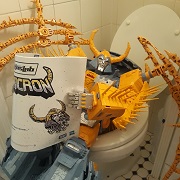





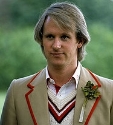

 "
"

